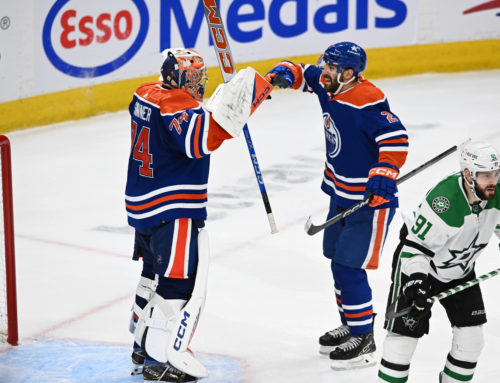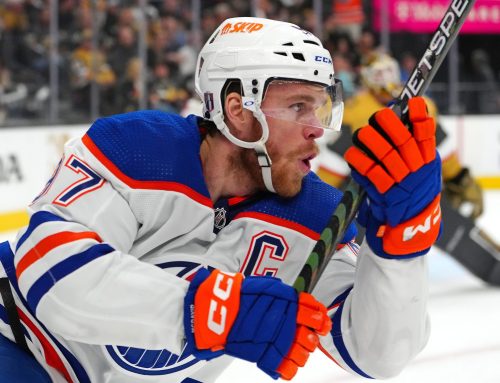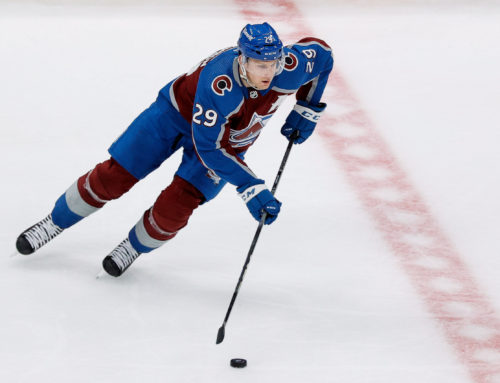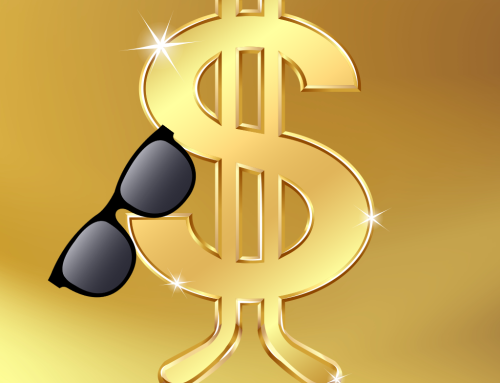Line Combos How Important Are They?
Dobber Sports
2008-10-12

( cliquez ici pour la version française )
Line combinations are interesting. To me, if I see a player who I think has some offensive potential moved up to play on the top line, it justifies my thinking and I see a glimmer of hope.
Rarely does it shape how I feel a player will perform over the course of this season.
In the fickle universe of fantasy hockey, many poolies change their opinions on players as often as coaches change their line combinations. With some coaches, that could mean desperately trying to acquire a player and then desperately trying to unload him – before the end of the first period!
While there are some duos who will play the bulk of the season together – Anze Kopitar/Dustin Brown, Ryan Getzlaf/Cory Perry, Derek Roy/Thomas Vanek, Jarome Iginla/Daymond Langkow, Pavel Datsyuk/Tomas Holmstrom, Shawn Horcoff/Ales Hemsky, Patrick Elias/Brian Gionta, Doug Weight/Bill Guerin, Jason Spezza/Dany Heatley, Daniel Briere/Simon Gagne, Vincent Lecavalier/Martin St. Louis, Daniel and Henrik Sedin, Alex Ovechkin/Nicklas Backstrom all come to mind – the third member of the troika is often bounced around. The second line and one member of the third line are also bounced around quite a bit. What you have are five players that take turns moving around the top three lines and two players remaining on that first line.
Is reacting to those changes any way to run a fantasy squad?
Off the top of your head, can you think of more than a few line combo changes that impacted the final numbers of a player’s season? Look at last season’s top 30 scorers. Who shouldn’t have been there? Mike Ribeiro, Jason Pominville and Alexei Kovalev were surprises. Were any of them pulled up because of their linemates? Or did they pull up their linemates? If you swapped Brenden Morrow for Loui Eriksson, would Ribeiro have dropped more than 10 points? I submit – no. Would Eriksson have added more than 10 points to his final total? Again – no.
However, if I discover that such a move was made midway through a game, it raises my opinion of Eriksson. It reinforces my belief that there is some potential there. But that’s all it does.
Are you going to suddenly draft Tyler Kennedy if he is moved to the wing on Sidney Crosby’s line? If so – why? If all Petr Sykora can do playing on Evgeni Malkin’s line is tally 63 points, why would Tyler Kennedy playing one game on Crosby’s line get you excited?
In a rotisserie league he may be worth a one-game flyer, but beyond that the news shouldn’t make any long-term decisions for you. If you predict 35 points for Kennedy this season and he somehow ends up playing all of it with Crosby (impossible, because coach Michel Therrien changes his lines far too often, but stay with me here) would you really bump him up to more than 45?
The point here is that line combinations do not matter in fantasy hockey, generally speaking, other than for one- or two-game spurts. Yes, Jonathan Cheechoo had 25 more points than he would have several years ago when he was plunked onto Joe Thornton’s line. Ditto two seasons ago with Chris Clark and Alexander Ovechkin. But how many cases like that can you name?
So how come the most common email that I received in the last month was regarding the line combinations in my Fantasy Guide? How come reader demand saw to it that a line combo section was created in DobberHockey?
Here are some ‘dos’ and ‘don’ts’ with respect to NHL line combinations.
DON’T
– Let a line combination dictate the direction of your team.
– Add more than 10 points to any player’s final season projection no matter what line you saw him practice on. Even if he had three points in the previous contest.
– Go after a player because he practiced on the top line yesterday.
– Get upset or frustrated over a line combination
– Criticize another for reporting one line combination, when you saw that there was another line combination in the third period of last night’s contest. Just wait a day or two – you’ll both be wrong when the line combos change yet again.
– Get sour on a proven star because the coach put a bum on his left wing and another bum on his right wing. Stars put up points regardless.
– Drop a player’s value if he is on the third line if that player is proven to produce within a certain range. If he gets 50 to 60 points for three years in a row, then he will get 50 to 60 points this year. The best example of this is Jeff Carter. Many lowered his value in trade talks because he was a “third-line center”. Meanwhile, he played over 20 minutes per game in the playoffs and sees similar ice time this year. Don’t categorize by line number, categorize by ice time.
DO
– Slightly raise your opinion of a prospect if the coach gives him some time on the top line with the superstar. Regardless of success or failure during the audition, you can now be assured that the coach feels the way you do – that the kid has a future as a producer.
– Pay attention to ice time over linemates. If a prospect plays on the fourth line, but sees time on the power play and ends up with over 15 minutes, he should rise a little in your eyes in the short term.
– File it in the back of your mind if a centerman is moved to the wing on another line if you are in a rotisserie league.
– Pay attention if your young player is stuck on the fourth line getting nine minutes per game. If he gets 20 points that season, don’t drop his value any. However, if he gets 20 points and played 15 minutes per game – then you can drop his value.
– Pay attention if a player plays 15 minutes on the top line one game and is scratched the next. He had his chance and he may not get another. However, if he played eight minutes and then is scratched – he never really had that chance yet and it still may come.
Putting too much emphasis on line combinations is micro managing and that is not always good. Sometimes the smart thing to do is to step back and look at the big picture – that is: macro instead of micro.





 EDM
EDM FLA
FLA MIN
MIN L.A
L.A TOR
TOR DAL
DAL NYI
NYI S.J
S.J COL
COL CHI
CHI ARI
ARI
